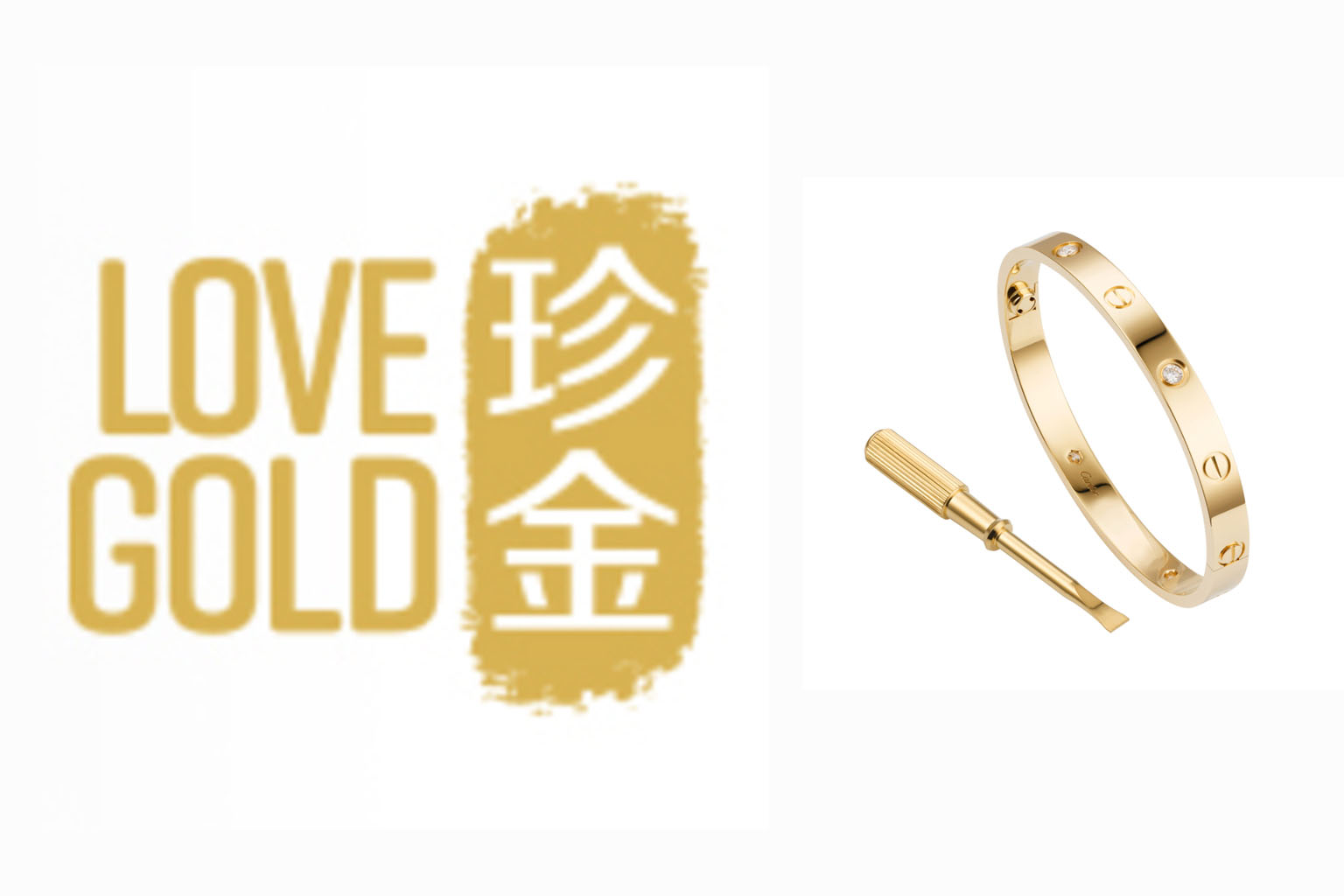Love's labours lost for Cartier in trademark case
It fails in bid to stop MoneyMax from registering mark after arguing it was similar to its stylised 'love' trademark
Sign up now: Get ST's newsletters delivered to your inbox

MoneyMax has been cleared to register its "Love Gold" mark (left). Cartier's "love" bracelet (right) is secured by using a screwhead device. Principal assistant registrar Mark Lim noted the distinctiveness in Cartier's use of the word "love" was in the screwhead device for "o" and possibly the use of the small letter "e", and neither of these elements were present in MoneyMax's mark.
PHOTOS: MONEYMAX, CARTIER
French jewellery giant Cartier's labour of love was lost on a trademark registrar in Singapore who made clear there cannot be a monopoly on using the word "love".
Registrar Mark Lim Fung Chian cleared MoneyMax Jewellery's bid to register its trademark "Love Gold" under the Trade Marks Act.
"A (love) bracelet may represent a metaphorical shackle of a person's loved one," he said in decision grounds last month, referring to Cartier's stylised "love" trademark registered earlier and stamped on its bracelets.
"The word 'love', however, should be free for traders to incorporate into their trademarks for jewellery," added Mr Lim, the principal assistant registrar of trademarks at the Intellectual Property Office of Singapore.
MoneyMax, a leading pawnbroking chain with shops across Singapore and Malaysia, had applied to register its "Love Gold" mark under the Act's Class 14 for jewellery and Class 35 for retail and other services relating to jewellery.
The application, made in 2017, was for use in a range of its jewellery products, including chains, earrings and bracelets as well as for retail services, such as marketing, online advertising and other goods.
Cartier International, part of leading global luxury goods company Richemont Group, relied on the earlier registration of its stylised "Love" mark in Class 14 goods to support its case. Items in which the mark is used include cufflinks, rings and brooches.
In Cartier's trademark-registered use of the word "love", the letter "O" is replaced with the device of a slotted screwhead and the letter "e" is in lower case, unlike the other letters in the word.
Cartier's "love" bracelet, first designed in 1969, is secured and can be removed only by using a gold "screwdriver" that is sold with the bracelet. It was apparently referred to as "modern love handcuffs" to reflect attachment between two parties, noted Mr Lim.
Cartier, represented by lawyer Sukumar Karuppiah, argued that MoneyMax's registration should be denied on the grounds of mark similarity, which MoneyMax's lawyer Aaron Thng disputed.
Mr Lim noted that the distinctiveness in Cartier's use of the word "love" was in the screwhead device for "o" and possibly the use of the small letter "e". He found that neither of these elements were present in the MoneyMax mark and held that they were not similar.
Mr Lim also rejected Cartier's claim that the application should be rejected as there was no distinctive character in MoneyMax's use of the word "love".
He said the two Chinese characters enclosed in a rectangular device with the words "love" and "gold", as well as the arrangement, made the mark distinctive as a whole.
Mr Lim noted that many other traders have registered a mark incorporating the word "love" for jewellery, including "Love Bridge", "PERFECT LOVE", and many more.
In dismissing Cartier's opposition with costs, the registrar referred to the "seminal decision" of Justice Chan Seng Onn in the past case of "Love & Co versus The Carat Club", underlining the judge's view that "no trader should be permitted to monopolise the word 'love', whose use is ubiquitous in the jewellery trade".
Justice Chan, in the High Court case, had invalidated The Carat Club's registration of the plain word mark "love" for jewellery, precious stones and precious metals under Class 14 of the Trade Marks Act.
The judge held that the mark was "devoid of any distinctive character" under Section 7(1)(b) of the Act, adding that "the word 'love' is almost a breathing word in the jewellery trade".
He said that Justice Chan had then added "the almost ubiquitous use of the word 'love' inscribed on jewellery items and in advertisements in the jewellery industry, renders it difficult for members of the public to realise or expect that (Carat's) ordinary and rather simple 'love' mark is meant to distinguish the defendant's jewellery from another trader's".


